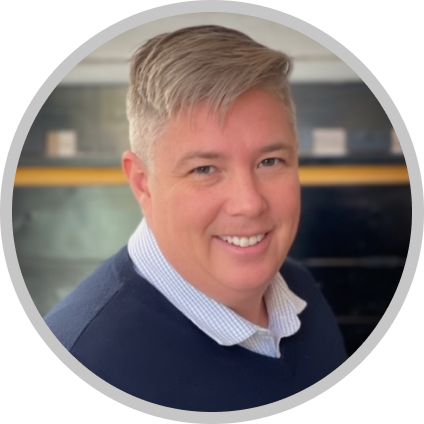View Lauren’s poster presentation about his project here.

Title: Founder and Principal Consultant
Organization: Expedition Consulting
City: Providence, Rhode Island
Project: Centering Equity in Drug Policy and Funding
About the Scholar
Lauren Nocera (he/him) is a transformational leader who harnesses the power of collective impact to drive change in political, policy, and organizational spaces, with a particular focus on equity and justice. He is an experienced political and policy strategist whose expertise spans the breadth of policy reform, operations, and program design and development. His work in the drug policy field all started with his experiences in community organizing in the early 1990s with then-illegal harm reduction efforts. During his time as Center for Addiction and Public Policy Scholar, Lauren was able to see this work come full circle as he played a central role in securing funding for Rhode Island’s first Overdose Prevention Center.
Lauren’s work in the drug policy field started with his experiences in community organizing in the early 1990s with then-illegal harm reduction efforts. During his time as Center for Addiction and Public Policy Scholar, Lauren was able to see this work come full circle as he played a central role in securing funding for Rhode Island’s first Overdose Prevention Center.
Lauren identifies as a neuro-atypical person, a member of the LGBTQIA+ community, and a person in recovery from a substance use disorder.
In his 18 months as an Center for Addiction and Public Policy Scholar, Lauren was appointed as the inaugural opioid settlement manager at the Rhode Island Executive Office of Health and Human Services. In this role, he oversaw the distribution of 25 different funding streams, supported the work of the Opioid Settlement Advisory Committee, and developed an equity framework that became the basis for his Addiction Scholars project. He has since founded Expedition Consulting, which provides strategic consulting, project management, training, and technical assistance to support organizations on their journeys to achieve their mission and drive equity. Lauren brings his professional experience, academic experience, and lived experience together to assist clients from small peer-led organizations with budgets less than $50,000 to large health delivery systems with budgets in the hundreds of millions.
Experienced inside and outside of government, Lauren previously served at the Rhode Island Department of Health (RIDOH) as a senior economic and policy analyst. At RIDOH, he focused on policy to support improved compliance with Culturally and Linguistically Appropriate Services Standards and the Americans with Disabilities Act. Before his state service, he was the associate vice president of equity initiatives at Thundermist Health Center, overseeing internal and external programming. Due to his leadership, Thundermist Health Center became the first trauma-informed health center in Rhode Island. The center also became the first and only health center to make naloxone freely available to all staff, volunteers, and patients — no questions asked — and to require all staff to be trained in overdose prevention. In addition to his work in health care, he led prevention and advocacy efforts at several AIDS service organizations and youth development organizations.
Lauren holds a Master of Public Health from Boston University, with a dual concentration in health law and social and behavioral sciences. He is also a social worker with a Master of Social Work in health, disability, and aging from Rhode Island College. He also holds a diversity, equity, and inclusion professional certificate from Cornell University.
About the Project
The Center for Addiction and Public Policy Scholars Program strengthened Lauren’s focus on equity issues. As the equity — especially racial equity-related — gaps in overdose and other substance-use-related outcomes become clearer and clearer, Lauren increased his focus on strengthening policies to improve results.
His experience working in community and state government settings, as well as with his clients, led him to realize that many individuals and organizations want to do better but do not know how. Most organizations have limited time and expertise and often lack the budget to hire a consultant to help. This observation inspired his project: an openly available Equity Expectations Framework that governments, grantmakers, and organizations can modify as needed and adopt as a jumping-off point for their work to improve equitable results.
